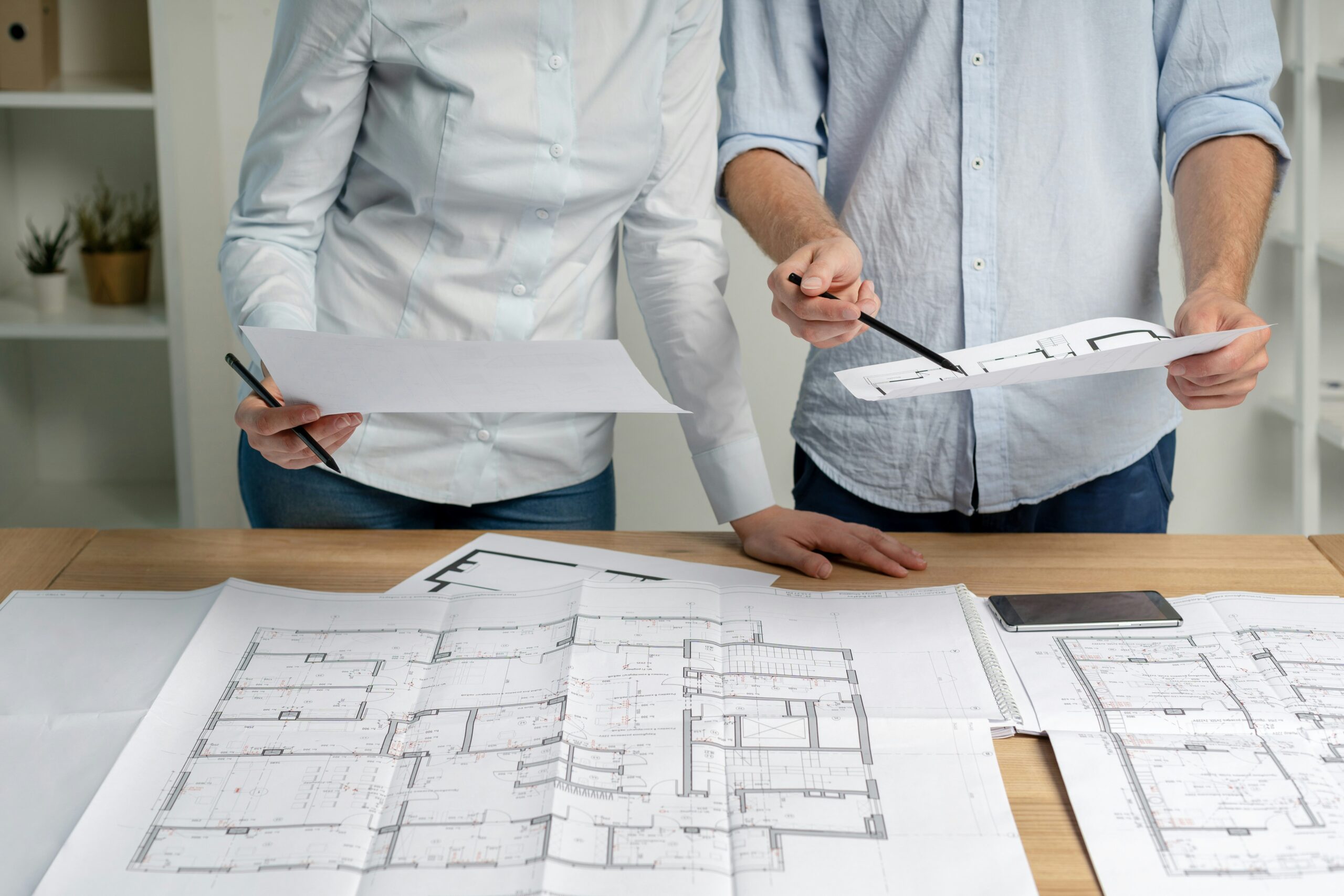
Construction project management is an essential skill for design professionals who want to successfully navigate the complexities of managing projects. The ability to organize, lead, and execute construction plans efficiently can make all the difference in a project’s success. Here are the key aspects of mastering construction project management from the perspective of design professionals.
Understanding the Role of a Design Professional
Design professionals, such as architects, interior designers, and engineers, are crucial to the construction process. Their primary role is to provide the vision and specifications for the project, ensuring that the design is both functional and aesthetically appealing. However, as the project progresses, they must also transition into a management role. This includes overseeing contractors, ensuring the design is faithfully executed, and keeping the project on schedule and within budget.
As a design professional, understanding construction project management is vital to ensure the work aligns with the project goals. Effective communication with contractors and other team members is key to solving problems as they arise and keeping the project moving forward.
Setting Clear Project Objectives and Scope
A successful project begins with a well-defined scope and clear objectives. Design professionals must establish exactly what the project will entail, including specific design features, timelines, and budget constraints. The initial planning phase is the foundation upon which the entire project will be built. Without a clear scope, projects can easily veer off course, leading to delays and cost overruns.
At this stage, it’s crucial to work closely with stakeholders, including clients, contractors, and suppliers, to ensure that everyone understands and agrees on the project’s scope. Setting realistic and measurable goals helps all involved parties stay focused and ensures that the final design meets expectations.
Effective Budget Management and Resource Allocation
Budget management is one of the most challenging aspects of construction project management. Design professionals must have a clear understanding of the resources required and how to allocate them efficiently. This involves not only estimating costs but also monitoring expenses throughout the project to prevent overruns.
A successful project manager will also have the foresight to identify potential areas for cost savings without compromising the integrity of the design. Resource allocation should include both human resources and materials. Design professionals must ensure that the right teams and supplies are available at each phase of the project to avoid delays.
Additionally, making sure that there is a contingency plan in place to handle unexpected costs is essential. By staying on top of the financials and adjusting as necessary, design professionals can help keep the project on budget.
Managing Construction Schedules
Time is a critical factor in construction projects. Delays in any part of the process can have a domino effect, causing the project to run over budget and past the intended completion date. Design professionals need to be involved in creating a detailed project schedule that outlines all phases of construction, from the foundation to the final touches.
The schedule should include buffer time for potential delays, such as inclement weather or unexpected site issues. Regular communication with contractors is essential for monitoring progress and addressing any scheduling issues early. By tracking milestones and maintaining a proactive approach, design professionals can help ensure the project stays on schedule.
Communication and Collaboration with Stakeholders
One of the most important skills for design professionals is effective communication. A construction project involves a wide range of stakeholders, including clients, contractors, subcontractors, suppliers, and regulatory agencies. Keeping all parties informed and aligned with the project goals ensures that there are no misunderstandings that could lead to costly mistakes.
Design professionals must communicate not only the design vision but also any changes or challenges that arise during the construction process. It’s important to maintain transparency and foster collaboration to address problems quickly and keep the project moving forward.
Using tools such as project management software can enhance communication by providing a central place for all updates, documents, and feedback. With these tools, everyone involved can access the latest information and stay on the same page.
Overcoming Challenges in Construction Project Management
Every construction project is bound to face challenges, whether it’s weather delays, supply chain issues, or disagreements among stakeholders. The ability to anticipate, identify, and address these challenges head-on is crucial to the success of the project.
Design professionals should prepare for potential setbacks by having a risk management plan in place. This plan should outline how to handle common construction issues, such as budget adjustments or unforeseen site conditions. By staying flexible and maintaining a problem-solving mindset, design professionals can navigate challenges without derailing the entire project.
Mastering construction project management is an ongoing process for design professionals, requiring strong leadership, communication, and organizational skills. By understanding the intricacies of budgeting, scheduling, and stakeholder management, design professionals can ensure that construction projects are executed smoothly and meet client expectations. With the right approach, construction project management becomes a rewarding opportunity for design professionals to shape the future of building and design.